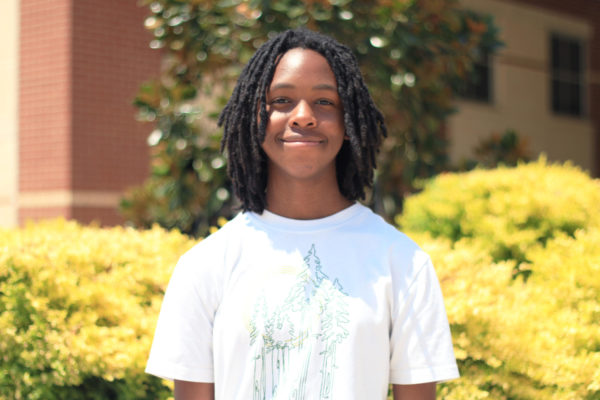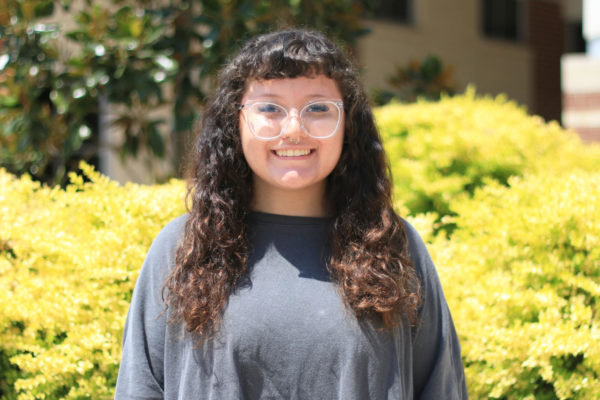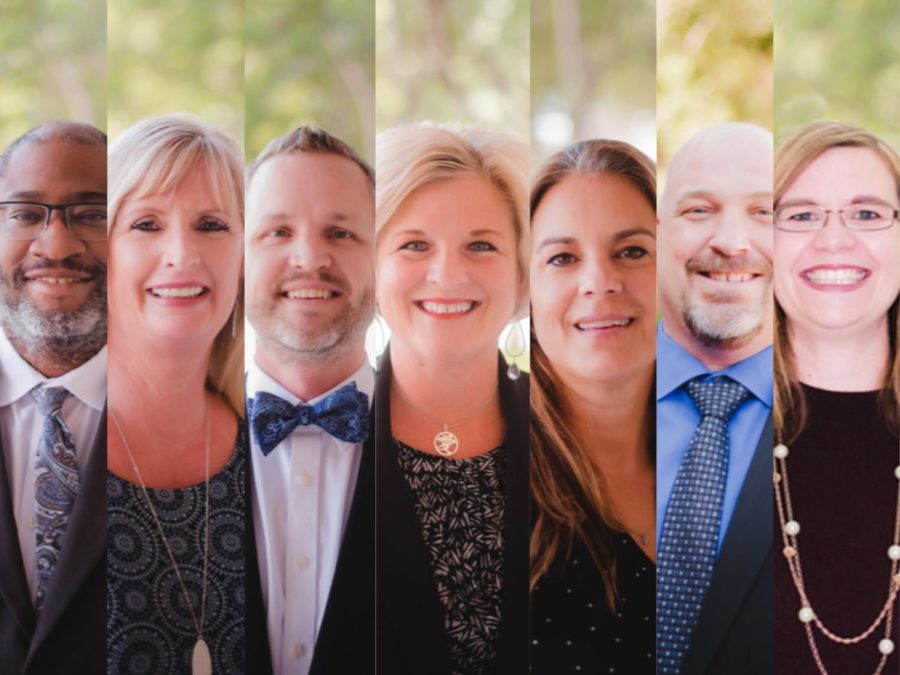Q&A: Get to know administrators in honor of National Principals Month
In honor of October being National Principals Month, here’s why and how being on staff at Hebron is important to administrators.
What made you want to become a principal or assistant principal?
Principal Amy Boughton:
“I was teaching at Newman Smith High School and coaching volleyball, basketball and soccer. I started serving on committees and got to work more closely with administration as I [spent more time] serving on those committees. I started to really admire the work of the principal that I was working under at the time. After watching him, and having such a great relationship with my high school principal, [I knew it was something that I wanted to do.] I didn’t know if I’d be able to obtain the goal, but I admired the position and it was something that I always wanted.”
Assistant principal Marybeth Coen:
“I think part of it was that the people that I worked with pushed me to work on my leadership skills, and it certainly became a passion of mine. The other thing is, as an assistant principal, you make a lot of connections with the kids that need the most support. When I was [working] in the classroom, I felt like I was able to do that on a smaller scale, but there was always that pressure of covering the [required] content and making sure they learned the information. I didn’t have the time to build those relationships with the kids in a deep and meaningful way like I wanted to, and I felt like I could be more impactful as an assistant principal.”
Assistant principal Glen Croll:
“I taught several years, [and] I just wanted to try to figure out a way that I could better support teachers and help students other than being in the classroom.”
Associate principal Dr. Jacob Garlinger:
“I wanted to just have a broader impact on students. I think I just had some more things to offer [as an administrator,] and that was just the route it took. I’m just thankful every day that that’s what I did.”
Assistant principal Jackie Kushnir:
“I was looking for the next challenge. I was teaching and a department chair at my other school. Some of the things I liked [about] being a department chair led me to become interested in becoming an assistant principal — having more of a role, playing a bigger part in the school.”
Assistant principal Brian McCoo:
“I had been teaching at Huffines Middle School for probably six [or] seven years at that particular time period, and was already starting to work with [the administrators] in the office, helping them out with some things. I started to transition as an assistant principal because I saw it as working with kids in a different format, working with teachers and helping them work with kids. That just felt like it was the natural progression of things for me — still working with kids, just in a different way.”
Assistant principal Dr. Vanessa Zavar:
“I thought it would be a great way to be able to help more students and affect more change than just being in a classroom. Not that [the] classroom isn’t an effective change, I [just] thought that I had some skills that I could bring to affect more kids than I could in a classroom.”
What did you do before becoming a principal or assistant principal?
Boughton: “I spent 10 years as a social studies teacher and coach at Newman Smith High School in Carrollton, Farmers Branch. I’m really glad I spent that amount of time in the classroom because that’s helped me, as an administrator, relate better to [the] teachers. I love teaching; I had a blast coaching volleyball and basketball over at Newman Smith. [However, after realizing] I wanted to go into administration, I worked on my master’s degree. At that time there were no online options, so I was teaching and coaching full time, while also going to classes at night or on the weekends. Once I finished that, I started applying all over the metroplex for an assistant principal job, and I ended up being an assistant principal at Marcus High School for nine years. [At some point] around my last two to three years being Marcus’ AP, I realized I wanted to become a head principal. In our district, you have to become a middle school principal before you become a head high school principal, so I ended up getting the head principal job at Griffin Middle School in The Colony. I was there for three years until I got the job [at Hebron] after [previous principal Scot] Finch retired.”
Coen: “I started off as a high school biology teacher and then I was testing coordinator for [Lewisville High School Killough] for six years.”
Croll: “I started teaching in 1993 in rural North Carolina and taught industrial technology. Then, I moved up to engineering and manufacturing at a vocational school. [Later on, I] moved to Texas [and] started teaching Industrial Tech at McKamy Middle School in Flower Mound. Then, after six years, we moved to east Texas and [I taught at a] middle school there, and then I moved back here to LISD.”
Garlinger: “I was a band director in Richardson ISD, which is a relatively unusual path [for an administrator.] I worked at Berkner High School and I was the head director at a couple of junior high [schools] in the district. I finished my last several years at Richardson High School. I got to work with lots of kids from all walks of life, all grades and a big group of kids at once.”
Kushnir: “I was a teacher and department chair at Marcus High School. I worked with Mrs. Boughton at Marcus High School; she was my assistant principal when I was a teacher. I already knew Mrs. Boughton and enjoyed working with [and] for her. Once I became qualified to be an assistant principal and there was an opportunity here, I applied for it basically because of her and the relationship we had.”
McCoo: “I was an English teacher. I taught eighth grade English at Huffines Middle School and seventh grade English at Bailey Junior High School in Arlington ISD.”
Zavar: “I was a teacher. I taught career and technology education classes at a middle school in the [Lewisville] district and before I was in Lewisville, I taught in Plano.”
What does your daily routine consist of?
Boughton: “I usually get here around 7:00 to 7:30 a.m and then [I] am usually here until somewhere between 5:00 p.m. and 6 p.m. [During the day,] I usually have a couple of parent and staff meetings, and with that I try to be out in the mornings on duty to help with IDs and different things. [Then,] during second period, which is our funding period, I help. So if we have subs or someone’s having a hard time getting attendance done, then we run paper copies [of the attendance] to them. I also like to [help out during] lunch [duties] when I can, at least once a day. [Another thing is that] things come up. For example, if a student needs to be searched or [we have an] ARD meeting for a special ed student. [Therefore,] I don’t have a lot of time throughout the day. I end up doing a lot of the preparation work for the next day after everybody leaves around four or five o’clock. I usually have night duty two to three nights a week as well.”
Coen: “Every single day is different. I don’t think I’ve had two days look the same. But I think the most important thing is that I am made available and approachable for anything that might come up. Whether it’s a student that needs help, a teacher that needs help, diffusing a situation or keeping the campus safe, I need to be very intentional in not having a set schedule or plan because I will never be able to follow it. I need to come into every single day knowing that I don’t know what I’m going to walk into, and that I need to be flexible and ready to address whatever the most important things are.”
Croll: “We get here a little bit before students do, and then we go on morning duty to make sure that students are getting to their classes. Usually, we’ll have lunch duty for about an hour, and then we will have after school duty from 3:45 [p.m.] to 4 or 4:15 p.m. If we have any after school activities like a sporting event, then we’ll stay and go to that when it starts at around 5:30 or so. Sometimes that goes until 11:30 at night just to make sure that everyone is leaving and everything is secure. Between lunch duties and the end of the day, we are responsible for dealing with student discipline, attendance and observing teacher’s classrooms. We may have parent conferences, meetings with teachers or training to go to. It just varies from day to day.”
Garlinger: “Wake up early. Usually, we [administrators] try and help teachers out as much as we can. There’s always some responding to situations that end up having to happen. But we want to have some time dedicated to helping teachers and being in teachers’ classrooms, trying to make sure the kids are getting what they need out of their education. The rest of the time is just making sure we are covered on supervision for the different things we have going on, making sure our kids are well-taken care of for all their social [and] emotional needs going on or just difficulties. If kids are struggling in class, we want to figure out how to help. All those sorts of situations.”
Kushnir: “First thing in the morning, I usually check my emails and take care of a couple of easy tasks like looking at tardies. Then, I go out to bus duty and I’ll be out there [for] 45 minutes every morning. [I] come back in [and] usually have a meeting or two on the calendar. In between meetings, I try to take care of just meeting with students, calling parents [and] taking care of different situations that just arise out of nowhere. A big part of my day is just unpredictable.”
McCoo: “I’m over buses, so usually when I get here, it’s straight out to the buses. I stay out there until all of the buses come in. It just depends on what I have going on. Usually for me it’s a lot of meetings. [I] try to walk some classrooms, lunch duty [and] end my day with bus duty, just trying to make sure all of those items are taken care of.”
Zavar: “This school has about 3,700 kids in it: it’s 43 acres and several buildings. It’s kind of like a living city. There’s absolutely no way to know what the city’s going to need any day. It’s unpredictable.”
What is your favorite part about working at Hebron?
Boughton: “We’re so lucky because so many kids are good at so many different things. It’s going from watching both the boys and girls cross-country teams qualify for regionals to band performing at regionals in Denton. And then you can go to our middle schools and see the younger kids trying to become Hawks up here, and they’re knocking it out of the park. I’m so proud of the fact that our school is good in so many ways.
Coen: “I think [Hebron] has an amazing family feel to it. I had been at my old campus for 12 years, so leaving was really hard, but the transition was so easy. Being here, I felt like people took me in and built relationships with me right away. I think the kids are amazing; they work hard and they are wonderful. It’s been really nice to be at this campus. I think it’s a great learning experience for me, because it has so many opportunities to learn and grow, but also so many opportunities to meet so many wonderful kids.”
Croll: “I think my favorite thing about being an assistant principal is just working with the students. I really enjoy high school students; working with them and helping them figure things out so that they can graduate high school and either go into the work field or go into college and be successful. I also enjoy working with the teachers. We have excellent staff here and I enjoy collaborating with them and going into their classrooms and watching them teach. I try to help them when I can and also get plenty of feedback from them as well.”
Garlinger: “It’s always the people. I’ve said this forever: when you enjoy the people you work with, it makes every day easy and fun. I’m not even talking about just the teachers, [but] the staff [as a whole.] I’ve known them for over 10 years now and I love them to death. The kids are great, too. That’s why I do it. I just enjoy coming in and working with people.”
Kushnir: “The students. I love working with the kids [and] I love meeting with the kids. Whether it’s a discipline issue or not, I love having the opportunity to get to know all the students better.”
McCoo: “I really just feel like this is a top-notch school. I know people probably say that all of the time and don’t realize all the great things that we have going on here [and] how successful and brilliant the kids are, how great the community is and, really, how great the teachers are. They all come and work together just to make sure students have what they need, and you really can’t ask for anything better than that.”
Zavar: “The kids. Why else would I be here? This is the best school and has the best students, the most opportunities and the best location. We have a great school culture, and blue is a good color.”

Senior Nyla Smith is the news editor and this is her third year on staff. In her free time, she enjoys knitting and watching movies.

Senior Madeline Rivera is the Editor-in-Chief and this is her third year on staff. In her free time, she enjoys watching romantic movies, traveling and...



